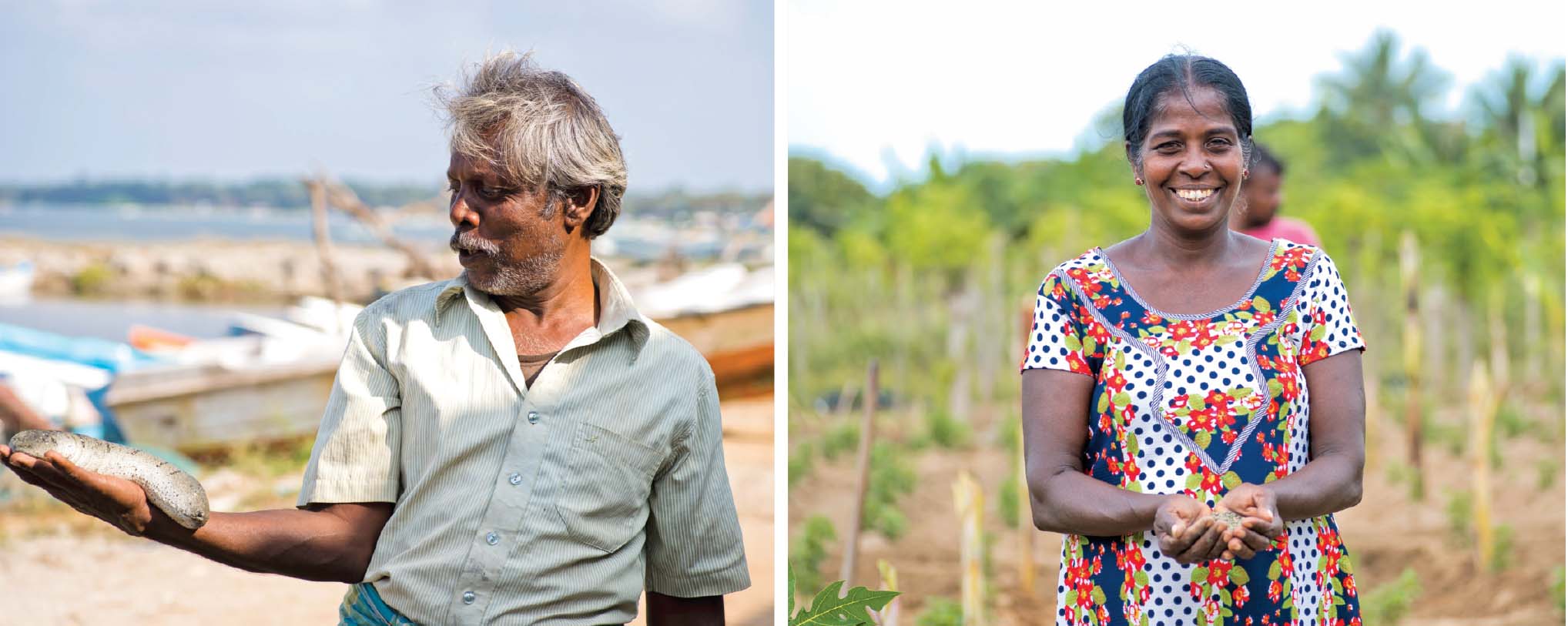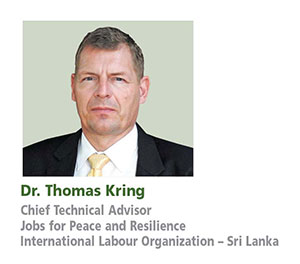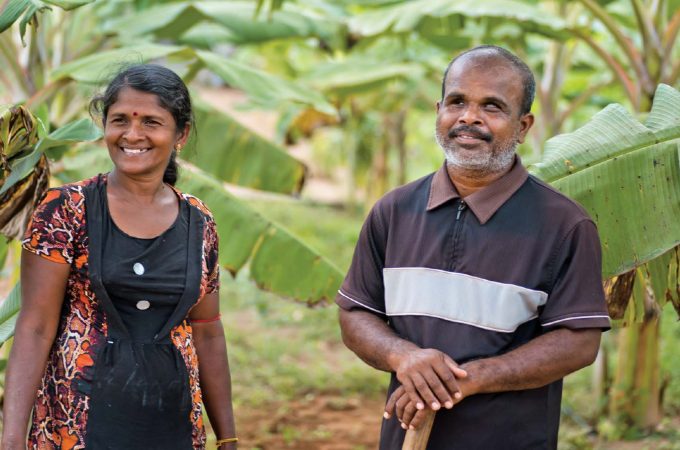LEED+
Planting the seeds for a more sustainable and inclusive future

The Local Empowerment through Economic Development and Reconciliation (LEED+) project implemented by the International Labour Organization (ILO) in Sri Lanka focusses on creating inclusive and sustainable livelihoods, and decent work opportunities for rural communities in the country’s Northern Province.
A part of ILO’s global Jobs for Peace and Resilience programme – which aims to contribute to more peaceful and resilient societies in conflict affected and disaster prone countries – the LEED+ project’s key strategies include a sectoral approach towards the development of local micro, small and medium enterprises (MSMEs) and cooperatives. Partnerships with the private sector play a pivotal role in achieving this.
“A key reason for fostering partnerships is generating economic incentives for both producers and investors on equal terms,” says ILO’s Chief Technical Advisor Dr. Thomas Kring, explaining: “And as such, we’re creating a win-win situation between the north’s small-scale farmers and large-scale businesses in other parts of the island.”
He adds: “With the Government of Sri Lanka’s intention to enhance domestic production as highlighted in the Vistas of Prosperity and Splendour national policy framework, the LEED+ initiative is geared to strengthen the agricultural sector in the Northern Province and promote the production of certain crops.”
Prior to the LEED+ project, many small-scale farmers in the region found it challenging to earn steady incomes due to a lack of required skills, knowledge, and market information and access, as well as affordable financing options.
With the ILO’s initiative however, farmers are now able to harvest yields of higher quality and volumes, which they can sell directly to companies – especially those in the Western Province – at fair prices, avoiding exploitation by intermediaries.
A steady source of reliable supply for investors also means a steady source of income for farmers, and a relationship with immense potential for expansion and growth. In addition, strengthened local supplies also pave the way for replacing imports.
As the volume of production increases in the north, the project also hopes this will provide an incentive for private sector businesses to expand their activities to the region, which includes setting up processing centres, thereby creating further employment opportunities.
Kring comments on the project’s evolution: “Currently, LEED+ is engaged in the agriculture and fisheries sector, and has six ongoing partnerships with the private sector in the coco chips, sea cucumber, groundnut and black gram value chains. Because it makes good business sense, we see these companies expanding their activities on their own even without our support.”
“We are also engaging the government in discussions about the possible replication of the LEED+ approach in other areas and sectors,” he reveals.
The LEED+ initiative has proved to be one that is sustainable by establishing links between producers in the north and the private sector, alongside the creation of an ecosystem of necessary support services, knowledge inputs and market linkages.
This entails a network of cooperatives, grassroots producer organisations, local MSMEs, public and private sector partners, the National Chamber of Exporters (NCE), national and provincial chambers of commerce, the Seafood Exporters’ Association of Sri Lanka, the Employers’ Federation of Ceylon (EFC), trade unions, and government bodies at the national and provincial levels.
Indeed, this enables the decent work opportunities that are presently at play to continue even after ILO is no longer part of the equation.
The benefits of LEED+  interventions extend beyond the direct beneficiaries of the project with the bolstered market system positively influencing the livelihoods of all those engaged in the agriculture and fisheries sector in the region while also driving the sector forward.
interventions extend beyond the direct beneficiaries of the project with the bolstered market system positively influencing the livelihoods of all those engaged in the agriculture and fisheries sector in the region while also driving the sector forward.
As part of its efforts, the project is also facilitating greater access and engagement for vulnerable women and persons with disabilities in terms of employment opportunities.
“Essentially, the ILO’s role is to plant the seed, facilitating and building opportunities that connect businesses to communities, so that everyone can share the gains of growth – and ultimately, everyone can move forward,” concludes Kring.
Supported by Australia’s Department of Foreign Affairs and Trade (DFAT) and the Norwegian government, LEED+ at its core is a quintessential ILO effort, given its ultimate aim of creating decent, inclusive and sustainable jobs, and ensuring the empowerment of conflict affected communities in the process.
– Compiled by Ashwini Vethakan
INTERVIEWEE DETAILS
Dr. Thomas Kring
Chief Technical Advisor
Jobs for Peace and Resilience
International Labour Organization – Sri Lanka
CONTACT DETAILS
Telephone
2592525
Email :COLOMBO@ilo.org
kathireson@ilo.org
Website
www.ilo.org/colombo
___________________________________________________________________________
QUOTE
We’re creating a win-win situation between the north’s small-scale farmers and large-scale businesses in other parts of the island
___________________________________________________________________________



